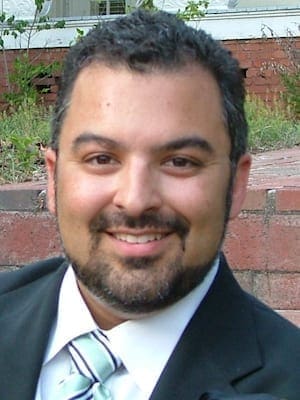Caring for others is a habit to be learned.
One of the hardest classes I took in seminary was not theology, philosophy, Hebrew or Greek. It was pastoral care.
The aim of pastoral care is to teach students how to listen, confront conflict, counsel and give referrals, and have empathy. In short, the class is a crash-course in cultivating a “pastoral presence.”
You might assume that having a pastoral presence—the ability to reflect compassion and care in every situation—is something that God gives every pastor as a gift. That assumption is wrong.
It is hard to learn empathy and compassion, and such lessons must be honed over time.
In fact, everyone needs to learn how to care for others. It is not a trait that we perfect just because we are human.
A recent article in the Washington Post finds that caring for others, being compassionate and having empathy are critical values and practices that adults must teach children and one another.
Unfortunately, teaching people how to care is not high on the priority list of things to do. We take it for granted.
The article highlights Harvard psychologist, Richard Weissbourd, whose research shows that nearly 80 percent of youths said that their parents were more concerned about their achievements than about how they—the youths—cared for others.
“[Children] need adults who will help them become caring, respectful and responsible for their communities at every stage of their childhood,” Weissbourd said.
Teaching people to care for others must be intentional and strategic. It must also inspire sensitivity and curiosity about other cultures, faiths and communities.
If people have to learn how to care for others, then it stands to reason that churches need to learn the same.
Many years ago, our church had a meeting to discuss the direction of the church and its ministries.
In the middle of that meeting, a couple who had attended the church for less than a year spoke up. “We have been here for some time now, but no one has invited us over for dinner or to an outing. No one has taken the time to get to know us.”
The whole congregation was flabbergasted and left speechless. It was embarrassing, but it challenged us to improve our care for each other.
The church made an intentional effort to learn how to welcome guests, build a community of care and establish ministries that helped people connect with God, with one another and with the larger community.
It was not easy. We literally had to tell parishioners how to greet guests and what to say when they saw an unfamiliar face.
We also had to teach church-goers that the chairs in the sanctuary were not theirs. They may be asked to sit in different places if a new family took up residency in their favorite spots.
Over time, the entire culture of the congregation changed. I went from asking specific people to greet guests to simply watching people greet guests on their own initiative.
Effective follow-up also improved over time. When guests returned to church, people welcomed them back, rather than approaching them as if it was their first time.
This experience confirmed for me that caring for others had to be taught indeed.
Unfortunately, we live in an age in which the individual and the individual’s needs often trump the needs of others.
Our policies reflect it, our rhetoric perpetuates it, and our economics thrive on it.
In sharp contrast is Jesus’ care for others, which set an example for how we are to live, practice community and enlarge our compassionate embrace. When we follow his example, we find that caring for others takes precedence over our own needs, wishes and wants.
 Joe LaGuardia is senior pastor of Trinity Baptist Church in Conyers, Georgia. He blogs at Baptist Spirituality, where a version of this article first appeared.
Joe LaGuardia is senior pastor of Trinity Baptist Church in Conyers, Georgia. He blogs at Baptist Spirituality, where a version of this article first appeared.
Joe LaGuardia is senior pastor of First Baptist Church in Vero Beach, Florida.

